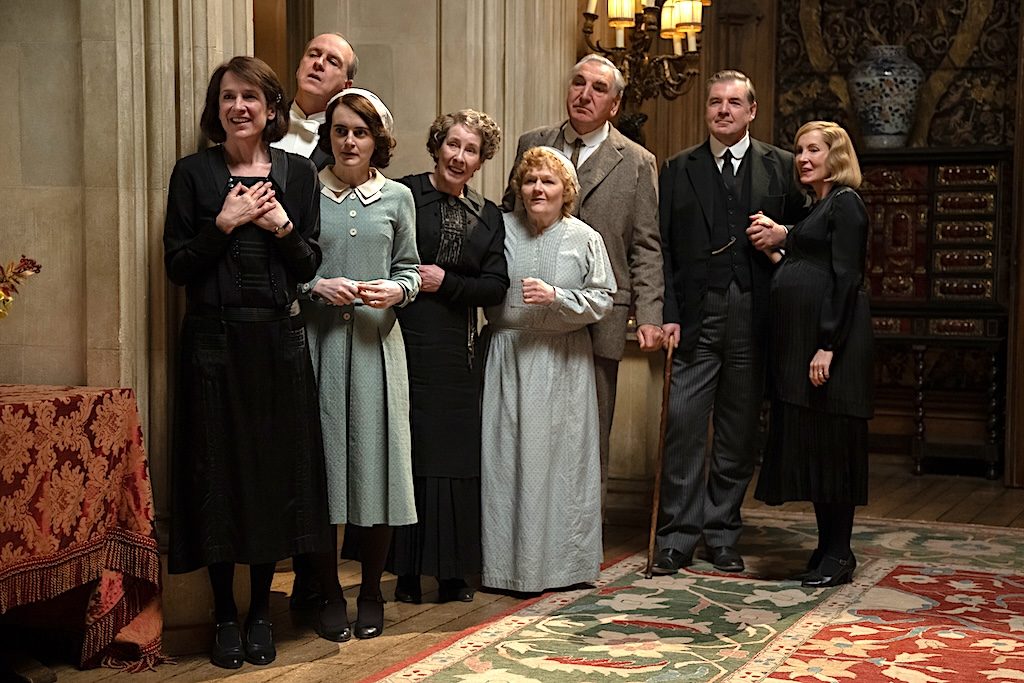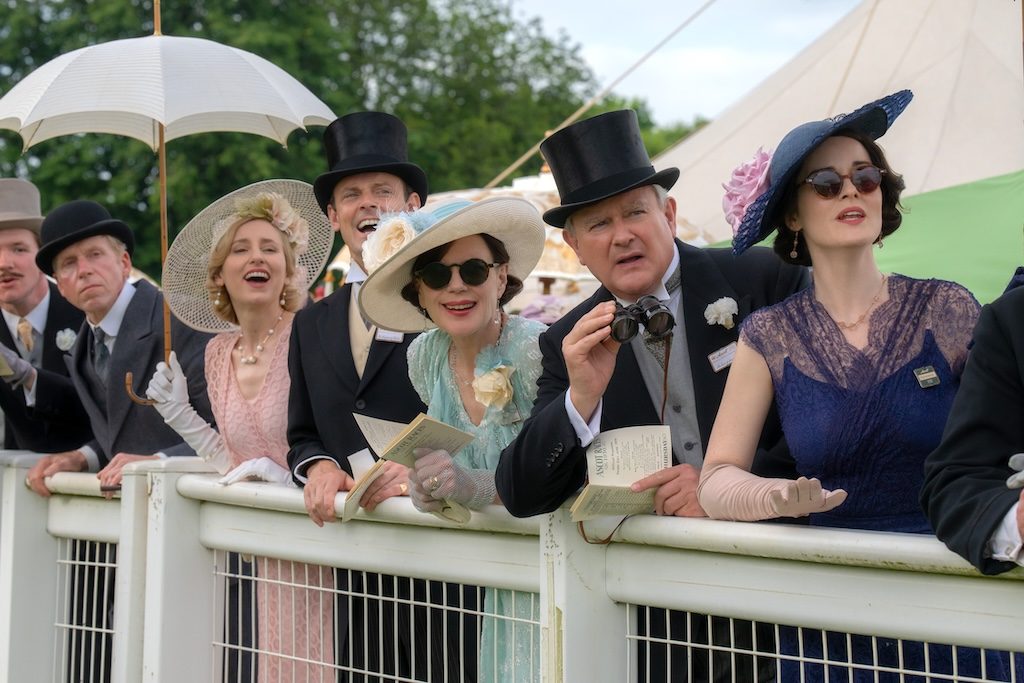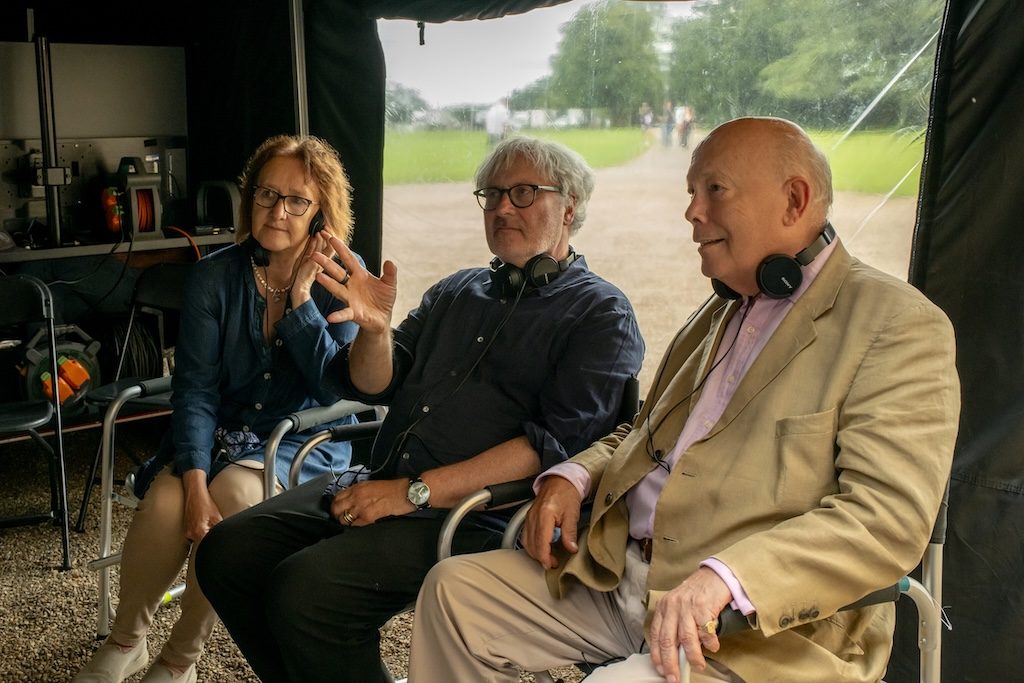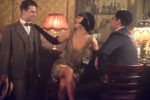The Final Chapter: How Downton Abbey’s Grand Finale Brings the Crawley Saga to a Close

Julian Fellowes has enthralled global audiences over six seasons through the lens of the aristocratic Crawley family and their colorful servants in Downton Abbey. It depicts an upstairs-downstairs world, illustating the class and social structures of the era.
Now, the grand finale, truly befitting of a big‑screen treatment, visits the Crawleys in the 1930s navigating a calamitous stock market crash, family scandals, and rogues. It is a time for a changing of the guard as patriarch Robert Crawley, Earl of Grantham (Hugh Bonneville), prepares to hand over the reins of his beloved Downton Abbey estate to his heirs. The Final Chapter closes the book on the Crawleys, but opens exciting possibilities of what might come next in the new Downton generation.
Six TV Seasons of Downton Abbey: Timeline
- Season 1 (1912–1914): Establishes Downton’s social order after the sinking of the Titanic removes heirs and threatens the estate’s succession; introduces major upstairs and downstairs characters and their interdependent lives.
- Season 2 (1916–1918): The First World War reshapes roles; characters serve in war, the homefront adapts, and the war’s traumas begin to narrow class divides.
- Season 3 (1920s aftermath): Postwar social change accelerates—marriage, inheritance, and political shifts test loyalties; the family negotiates modern pressures on the estate.
- Season 4 (late 1920s): Personal scandals and public roles intensify; new romantic and professional tensions surface across classes.
- Season 5 (late 1920s): The series deepens themes of decline and adaptation—generational handovers and evolving servant roles become prominent.
- Season 6 (1930): Concludes ongoing arcs with marriages, departures, and reconciliations; cements Downton’s legacy while acknowledging irreversible social change.

Miss Baxter (Raquel Cassidy), Mr. Molesley (Kevin Doyle), Daisy Parker (Sophie McShera), Mrs. Hughes (Phyllis Logan), Mrs. Patmore (Lesley Nicol), Mr. Carson (Jim Carter), Mr. Bates (Brendan Coyle) and Anna Bates (Joanne Froggatt). Photo by Rory Mulvey/ Focus Features
Downton Abbey also has two previous films produced amidst the main seasons which ran from 2010 – 2015.
- Downton Abbey (2019) — The Crawley family and their household prepare for a royal visit from King George V and Queen Mary. Old tensions resurface as class boundaries shift: the family must present a united front while dealing with personal dramas (a scandal, romantic entanglements and financial worries).
- Downton Abbey: A New Era (2022) — The family confronts two departures from tradition: a film crew arrives to shoot a period movie at Downton, exposing new money and modern culture, while an unexpected inheritance leads them to a mysterious villa in the south of France. As relationships are tested, secrets revealed and legacies reconsidered, the Crawleys and staff must adapt to changing times while protecting their shared home.
Downton Abbey: The Grand Finale – Movie Plot Summary
The Crawley family and their servants are in London for the 1930 summer. At Lady Petersfield’s Ball a shocking announcement embroils Lady Mary Crawley (Michelle Dockery) in scandal: she is now divorced, instantly shunning her from high society darling to aristocratic outcast and humiliating her family.
Downstairs, the new decade brings change: Andy Parker (Michael Fox) prepares to succeed Charles Carson (Jim Carter) as butler, and Daisy Mason (Sophie McShera) will become cook when Mrs Patmore (Lesley Nicol) retires. Mrs Patmore welcomes a quieter life, but Carson struggles to let go. Despite tensions, the loyalty between family and servants endures.
Reeling from Mary’s disgrace, Robert and Cora Crawley (Elizabeth McGovern) return to Yorkshire to Downton. The absence of the late Dowager Violet Crawley (Maggie Smith) is keenly felt. Robert has a poignant moment as the Dower House is cleared for new tenants. Isobel Crawley (Penelope Wilton) takes on Violet’s public role as President of the County Fair and stirs controversy by inviting Carson and Daisy onto the committee, provoking local snob Sir Hector Moreland (Simon Russell Beale) to protest.
Mary remains in London at Grantham House to manage family affairs. Cora’s American mother Martha Levinson has died. Mary’s uncle Harold Levinson (Paul Giamatti) arrives to settle the estate. Mary, who has begun major renovations at Downton, needs funds and is drawn to Harold’s charismatic New York friend Gus Sambrook (Alessandro Nivola). A dalliance with Sambrook offers comfort, but Mary soon regrets her lapse of judgment.
Worse news follows: Harold admits he lost Martha’s fortune in the Wall Street Crash. The Crawleys have been spending money they don’t have. Sambrook has been covering Harold’s debts and expects repayment with interest. Robert is devastated—scandal has weakened the family’s standing, and now the estate faces financial peril.
During a tense dinner, Sambrook advises selling assets to recoup losses and pressures Mary for backing. She supports Cora’s caution instincts instead, prompting Sambrook to issue a thinly veiled threat. Cora arranges a dinner to rehabilitate Mary socially, but local friends snub her. Robert and Mary clash—he questions her judgment and readiness to lead while she challenges his reluctance to modernize. Bertie Pelham (Harry Hadden‑Paton) and Tom Branson (Allen Leech) deliver blunt truths, and Robert struggles with his purpose beyond Downton.
Lady Edith Pelham (Laura Carmichael) tries to restore Mary’s social standing by inviting Noel Coward (Arty Froushan) and actor Guy Dexter (Dominic West) to Downton. The servants spread the excitement to ensure maximum guests. Attendance at Downton becomes the season’s must-attend event. At Ascot, Sambrook networks among royalty, but Tom learns Sambrook’s shady past involves lying and theft; Edith vows the Crawleys won’t be his victims.
Coward and Dexter’s arrival lifts spirits. Thomas Barrow (Rob James‑Collier) returns with theatrical tales; Mr Molesley (Kevin Doyle), now a screenwriter, attempts a showbiz surprise that misfires. Daisy’s first official dinner as head of the kitchen is a success, and Coward—fascinated by Mary’s story—decides to dramatize it, settling on the salacious title Private Lives.
Robert gives a moving speech entrusting Downton to Mary and announces he and Cora will move to the Dower House (flat). The family and staff celebrate the symbolic passing of the reins. At the County Fair Isobel’s leadership and the teamwork of Carson and Daisy win public support for Mary, cementing her role as mistress of Downton. A timely offer to purchase Grantham House secures the estate’s finances, ensuring Downton’s future in the hands of the next generation.

Lady Edith (Laura Carmichael), Bertie Hexham (Harry Hadden-Paton), Cora Grantham (Elizabeth McGovern), Robert Grantham (Hugh Bonneville) & Lady Mary Crawley (Michelle Dockery) Photo by Rory Mulvey/ Focus Features
Julian Fellowes On Downton Abbey: The Grand Finale
Downton Abbey began after I wrote a film called Gosford Park, which was set around a shooting party in 1932. It included the servants of the house, plus the guests and their servants. The producer, Gareth Neame, asked me if I’d consider writing about that territory for television. Gosford Park is quite a dark film and most of the characters are not happy. I didn’t think people would come back once a week to be depressed. I realized that we had to live in a different version of that same world and wanted a group of people who had been born to varied circumstances, more varied below‑stairs than above. That allowed me to exercise my prejudices, which are that most people are trying to do their best given the circumstances. I think that gave the series a kind of upward energy as opposed to a downward energy, which served us well.
At the end of the second film, we said goodbye to the beloved Violet. We wanted to make the point that this may be the end of a family member, but it wasn’t the end of the family. I also wanted to show that families like the Crawleys who survived into the modern world, had to redefine themselves, get used to the new way of things and see if they could live with it. A way of life many be gone for ever, but something new will replace it.

Producer Liz Trubridge, director Simon Curtis and writer/ creator/ producer Julian Fellowes Photo by Rory Mulvey/ Focus Features
Despite the rapidly changing times and fortunes, the Crawleys still a great family living in a great house. There is an air of change in their relationships with their servants and with ordinary people living in the village. The two world wars brought about a narrowing of the gap in the human experience and the aristocratic families were facing the wrong way in history after both wars.
Mary’s divorce was a rather dramatic way of showing that they were living in a different world and it just wasn’t acceptable. They would present to the outside world that everyone was happy, but the reality of what was going on was concealed. The cultural differences between America (the new) and Britain (the old) are juxtaposed, because divorce was more widely accepted in America.
I’ve always believed that the Americans from the 1890s had a big influence on the privileged classes in Britain. Most of the ‘dollar princesses’ came after the Civil War in America when great fortunes had been gained and to have a daughter who was married into the English aristocracy was considered very smart. American women were not taught as the British young women were, which was to sit in silence waiting to be talked to, keeping your opinions to yourself. The Americans had opinions and expressed them in a way that English women didn’t, and so they loosened up society in a way.
Join the Discussion!
Related Articles
Browse our Videos for Sale
[woocommerce_products_carousel_all_in_one template="compact.css" all_items="88" show_only="id" products="" ordering="random" categories="115" tags="" show_title="false" show_description="false" allow_shortcodes="false" show_price="false" show_category="false" show_tags="false" show_add_to_cart_button="false" show_more_button="false" show_more_items_button="false" show_featured_image="true" image_source="thumbnail" image_height="100" image_width="100" items_to_show_mobiles="3" items_to_show_tablets="6" items_to_show="6" slide_by="1" margin="0" loop="true" stop_on_hover="true" auto_play="true" auto_play_timeout="1200" auto_play_speed="1600" nav="false" nav_speed="800" dots="false" dots_speed="800" lazy_load="false" mouse_drag="true" mouse_wheel="true" touch_drag="true" easing="linear" auto_height="true"]










You must be logged in to post a comment Login